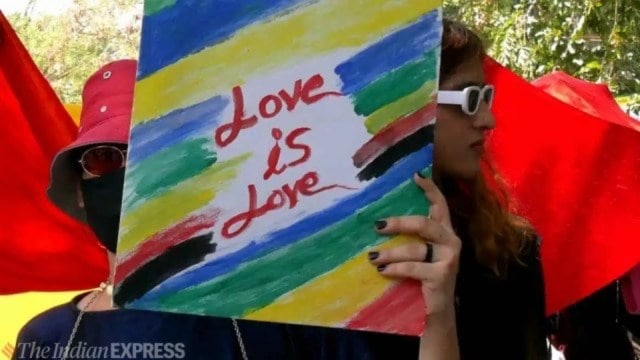
Aristotle once declared speech the essence of politics, a notion that has endured through the ages. In contemporary democratic thought, whether in deliberative democracy or participatory politics, the focus on voice, speech, and discourse remains central. Yet, the true meaning of speech emerges through its interplay with silence; what is left unsaid can be just as significant. Silence, in some contexts, can convey more than words, often indicating apathy, even deceit, in political discourse.
As people continue to read the verdict on the 2024 general election, the themes and narratives that emerged in the electoral discourse hold significant implications not only for Indian politics, but for global society. It has implications for future political and social agendas Examining the manifestoes of political parties reveals their stance on LGBTQIA+ rights in India.
The invisible minority
In a Human Rights Day speech in 2011, then US Secretary of State Hillary Clinton highlighted the plight of the LGBTQIA+ community, describing them as an “invisible minority” due to cultural and customary barriers that obscure the violations of their rights. She noted the persecution, violence, and denial of opportunities faced by LGBTQIA+ individuals, emphasising the urgent need for recognition and protection of their rights. Clinton’s observations remain relevant today, especially in India, where political parties play a pivotal role in combating homophobia and addressing the “invisible apartheid” against the LGBTQIA+ community.
Recent events, such as the tragic suicide of Kishor Kumar, a pioneer of LGBTQIA+ activism in Kerala, underscore the severe impact of systemic oppression. Homophobic harassment and toxic online campaigns exacerbate the struggles of queer individuals. A similar tragedy occurred when 16-year-old Pranshu Yadav died by suicide on November 21, 2023. Pranshu, a class 10 student in Ujjain, Madhya Pradesh, faced relentless bullying for their effeminate behaviour and social media presence, culminating in a flood of homophobic abuse that led to their death. Following Pranshu’s death, campaigns like #JusticeForPranshu emerged, seeking justice and highlighting the pervasive bullying faced by queer children. Despite such tragedies, there is a glaring lack of institutional measures to address bullying and support LGBTQIA+ youth. Additionally, the Supreme Court’s 2023 ruling against legalising same-sex marriage, deferring the decision to the legislature, left marriage equality an unresolved issue.
The missing debate
The Yogyakarta Principles of 2007 outline human rights standards related to sexual orientation and gender identity, affirming states’ obligation to protect LGBTQIA+ rights. Despite the Supreme Court of India’s alignment with these principles in decriminalising homosexuality in 2018, the country has yet to uphold them fully. In the just concluded election, the manifestos of major political parties reflect a general apathy towards these issues.
The Bharatiya Janata Party (BJP), with its conservative and majoritarian outlook, largely overlooks LGBTQIA+ issues in its manifesto. While it promised to include transgender people in the Ayushman Bharat system and expand Garima Grahas for their welfare, it was silent on broader legal rights and social acceptance for the queer community, highlighting the party’s regressive stance.
Conversely, the Indian National Congress, through its Nyay Patra, pledged to legalise civil unions for LGBTQIA+ couples and amend the Constitution to include sexual orientation as a ground for non-discrimination. However, it stopped short of addressing marriage equality and banning conversion therapy, offering limited progress for LGBTQIA+ rights.
The Communist Party of India (Marxist) supported the Congress’s progressive positions but did not explicitly address LGBTQIA+ issues in its manifesto. The Aam Aadmi Party (AAP) advocated “gender-affirming” approaches, emphasising safe spaces for LGBTQIA+ individuals, but lacked comprehensive policies.
In the 2024 general election, the debate over LGBTQIA+ rights was largely absent. While parties like Congress and the Dravida Munnetra Kazhagam (DMK) proposed minor policy changes, others, like the BJP, failed to address critical issues affecting the LGBTQIA+ community. Political leaders must prioritise inclusion and equality to build a more just society. The silence of political parties on these matters reflects a broader societal apathy towards the queer community in India.
The LGBTQIA+ community requires a resolute assertion of their natural rights. As India’s political landscape evolves, the call for LGBTQIA+ rights must be heard and acted upon, ensuring true democracy and justice for all.
Naidu is Assistant Professor, Sociology and Chairperson, Equal Opportunity Cell, MM Shankarrao Chavan Law College, Pune; Baghel is Assistant Professor, Law and Placement Cell Coordinator, Equal Opportunity Cell, MM Shankarrao Chavan Law College, Pune
Click here for real-time updates on the Lok Sabha Election Results 2024
© The Indian Express Pvt Ltd
First uploaded on: 17-06-2024 at 12:49 IST


